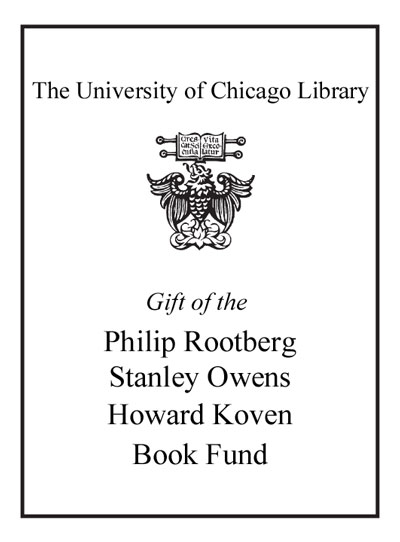| Summary: | The abolition of the military government at the end of 1966 and the results of the military campaign of 1967 sealed a chapter in the history of relations between the state and its Arab-Palestinian citizens and opened a new chapter. These events definitively closed the gates of possibility for the complete solution of the "Arab-Israeli question", and from the state's point of view they exacerbated the dilemma that had already been created with the 1948 fighting between its strategic purposes and the reality of the presence of the Arab-Palestinian minority in its territory. The establishment of the minority in Israel became an existing fact, while the state's ability to continue marking the differences of the minority through the iron wall erected by the military government, which existed for almost two decades, became impossible. In an attempt to deal with the gap between the ideal and reality, and in the absence of other strategic alternatives, Israel strove to continue establishing the status of the Arab-Palestinian population as a kind of enclave present in the Israeli space, but also different from it in various values. Doron Mazza's book examines the manner in which Israeli policy was implemented through the analysis of the field of political-institutional discourse. This is about the way in which the minority is talked about through conceptual systems, linguistic definitions and terms such as "Israeli Arabs", "integration", "fifth brother-in-law", "loyalty" and more, which turned the language into a policy tool for everything and anything and set rivets for the future as well. The construction of the discourse was aided by the networks of Arab affairs experts who developed the knowledge about the minority, through which they shaped the discourse, disseminated it and gave it an interpretation in the public sphere, especially among the policy makers. In this process, the adviser on Arab affairs in the Prime Minister's office, "The Philosopher King", Shmuel Tolidano, stood out, who knew how to use Orientalist studies in the Israeli academy and became the beating core of the network of experts on the "Arab-Israeli" issue. Matza's book connects matters of discourse, knowledge, language, policy and experts. Its importance is that it provides a glimpse not only of how the policy was shaped through the discourse mechanisms, but also of the internal logic behind it. In this sense, Matza's book helps in deciphering the dynamics that characterize the state's relations with the minority up until now.
ביטול הממשל הצבאי בשלהי 1966 ותוצאות המערכה הצבאית של 1967 חתמו פרק בתולדות היחסים בין המדינה לאזרחיה הערבים-פלסטינים ופתחו פרק חדש. אירועים אלה נעלו באופן סופי את שערי האפשרות לפתרונה המוחלט של "השאלה הערבית-ישראלית", ומנקודת מבטה של המדינה הם החריפו את הדילמה שנוצרה כבר עם שוך קרבות 1948 בין תכליותיה האסטרטגיות למציאות הנכחת המיעוט הערבי-פלסטיני בתחומה. התקבעות המיעוט בישראל הפכה לעובדה קיימת, בה-בעת שיכולתה של המדינה להמשיך לסמן את נבדלות המיעוט באמצעות קיר הברזל שהעמיד הממשל הצבאי, אשר התקיים כמעט שני עשורים, הפכה בלתי-אפשרית. בניסיון להתמודד עם הפער בין האידיאל למציאות, ובהיעדר חלופות אסטרטגיות אחרות, חתרה ישראל להמשיך לקבע את מעמד האוכלוסייה הערבית-פלסטינית כסוג של מובלעת הנוכחת במרחב הישראלי, אבל גם נבדלת ממנו בערכים שונים. ספרו של דורון מצא בוחן את האופן שבו הופעלה המדיניות הישראלית דרך ניתוח שדה השיח הפוליטי-ממסדי. מדובר באופן שבו דובר על המיעוט באמצעות מערכות מושגיות, הגדרות לשוניות ומונחים כמו "ערביי ישראל", "השתלבות", "גיס חמישי", "נאמנות" ועוד, אשר הפכו את השפה לכלי של מדיניות לכל דבר ועניין וקבעו מסמרות גם לעתיד. הבניית השיח הסתייעה ברשתות של המומחים לענייני ערבים אשר פיתחו את הידע על אודות המיעוט, ובאמצעותו כוננו את השיח, הפיצו אותו והעניקו לו פרשנות במרחב הציבורי, בעיקר אצל קובעי המדיניות. בתהליך זה בלט היועץ לענייני ערבים במשרד ראש הממשלה, "המלך הפילוסוף", שמואל טולידאנו, אשר ידע להסתייע בלימודי מזרחנות באקדמיה הישראלית והפך לליבה הפועם של רשת המומחים בנושא "הערבי-ישראלי". ספרו של מצא קושר בין ענייני שיח, ידע, שפה, מדיניות ומומחים. חשיבותו בכך שהוא מספק הצצה לא רק לאופן שבו עוצבה המדיניות דרך מנגנוני השיח, אלא גם להיגיון הפנימי העומד מאחוריה. במובן הזה יש בספרו של מצא כדי לסייע בפענוח הדינמיקה המאפיינת את יחסי המדינה עם המיעוט עד ימנו אלה.
|
|---|

